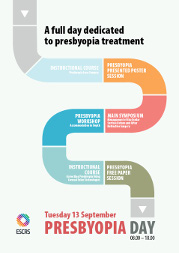Gene expression of fungal biofilms associated with infective keratitis
Session Details
Session Title: Inflammation and Pathology
Session Date/Time: Sunday 11/09/2016 | 14:30-16:00
Paper Time: 14:36
Venue: Hall C2
First Author: : S.Saha INDIA
Co Author(s): : J. Sengupta A. Khetan D. Chatterjee D. Banerjee
Abstract Details
Purpose:
Biofilm are more resistant to antifungals than planktonic cells due to biofilm structural complexity, and biofilm-associated up-regulation of genes like MDR1, MDR2, MDR4 and ROD1. This study analyzed the selected genes responsible for antifungal resistance in fungal pathogens like Aspergillus fumigatus, Fusarium solani and Candida albicans associated with infective keratitis.
Setting:
Tertiary care eye hospital of eastern India
Methods:
In the present study, a collection of fungal clinical isolates were analyzed for the known molecular mechanisms of resistance. Fungal isolates were grown in solid culture medium for normal growth, in RPMI 1640 liquid medium to allow biofilm formation, and after biofilm formation dispersed again with vortexing in liquid medium. After 72 hrs incubation all samples were sent for genetic analysis. The solid medium normal fungal culture was considered as control. Initially RNA was qualitatively and quantitatively analyzed with C-DNA synthesis. The expressions of genes and its quantification was carried out by data analysis and reaction setup of qRT PCR.
Results:
Biofilm have phenotypes distinct from planktonic cells, and this difference was reflected in greatest detail at the gene expression level. After analyzing qRT PCR report, total gene expressions quantification showed higher in number at biofilm mode for Aspergillus sp followed by Candida albicans compared with biofilm dispersed mode and control for all genes. Up-regulation of multi-drug resistance transporter genes was found common to the selected fungal isolates (MDR1, MDR2, MDR4 and ROD1) in biofilm condition compared with planktonic mode. After dispersing biofilm mode to planktonic mode the up-regulated genetic expressions continued for ROD1 genes whereas other genes were down regulated.
Conclusions:
Results revealed that selective genes (MDR1, MDR2 and MDR4) in biofilm state were up-regulated while down-regulated in following post biofilm disposal cells compare to planktonic cells. ROD1 gene was found up-regulated in both the samples. Regulation of genes play a significant role in determining drug resistance pattern of fungal biofilm formation.
Financial Disclosure:
NONE





